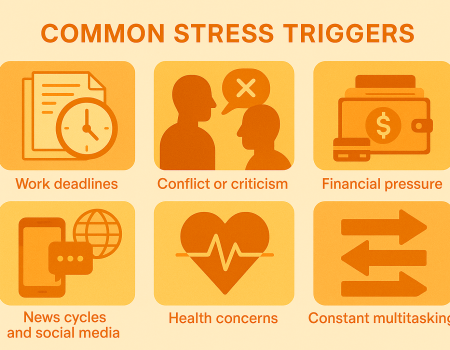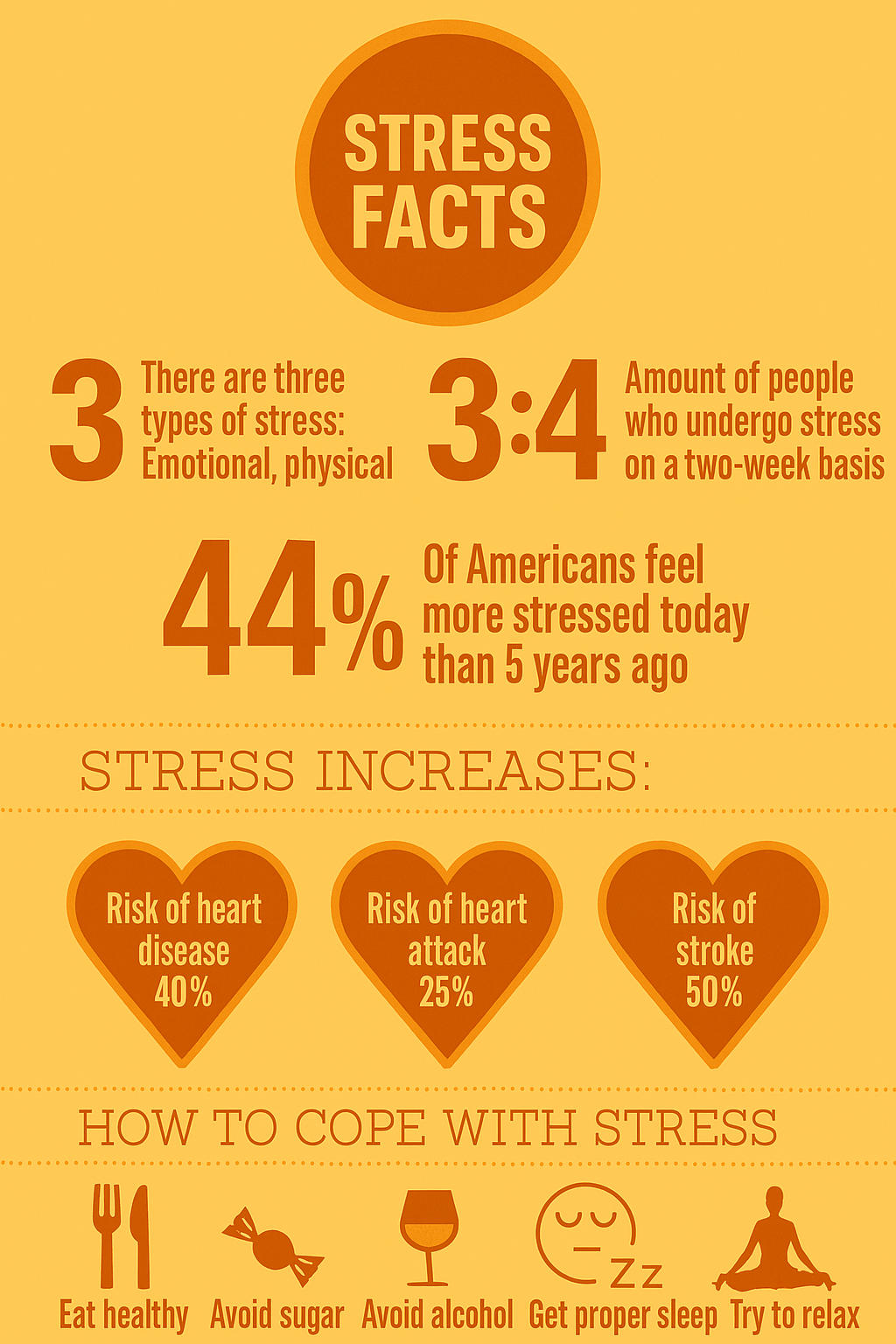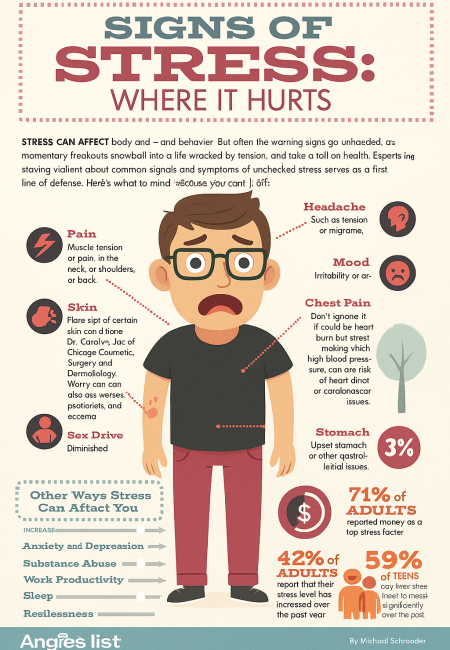
Managing
Stress with
Hypnosis
Stress Happens —
But It Doesn’t Have to Control You
Stress is a normal part of life. We all feel it when demands pile up — work, finances, family, school, health, and more. But while stress itself isn’t always bad, chronic stress can become a serious problem if we don’t find effective ways to manage it.
What triggers stress in one person might not even register for another. Still, when pressure builds and coping skills break down, stress can take a heavy toll — physically, mentally, and emotionally.
Hypnosis is a natural, drug-free way to quiet the stress response, reframe how you approach challenges, and retrain your mind and body to feel calm and in control — even when life gets busy
Once upon a time, stress kept us alive. Our ancestors used it to escape predators and stay alert to danger. In those moments, the brain released adrenaline and cortisol, pumping blood to muscles and prepping the body to fight or flee.
Today, we face fewer physical threats — but our stress response hasn’t changed.
The problem? Your brain doesn’t know the difference between a charging lion and a frustrating email.
Over time, this constant activation can wear you down, leaving you in a state of chronic overstimulation. It becomes harder to sleep, focus, enjoy life, or even breathe normally — and the physical consequences begin to pile up.

Recognizing the Symptoms of Stress
Understanding how stress affects you is the first step toward taking back control. Its impact can show up in your:
🔹 Body
-
Headaches and muscle tension
-
Fatigue or low energy
-
Upset stomach, nausea, or GI issues
-
Chest tightness or rapid heartbeat
-
Sleep disturbances or insomnia
-
Increased illness or infections
-
Changes in sexual desires
🔹 Thoughts
-
Constant worrying or racing thoughts
-
Forgetfulness or poor concentration
-
Negative self-talk and judgment
-
Indecisiveness or disorganization
🔹 Behavior
-
Overeating or undereating
-
Avoidance and procrastination
-
Increased reliance on alcohol, nicotine, or substances
-
Nervous habits: nail biting, pacing, fidgeting
🔹 Emotions
-
Irritability or mood swings
-
Feeling overwhelmed or hopeless
-
Social withdrawal
-
Low confidence and self-worth
If these symptoms feel familiar, know this: you’re not broken — you’re overloaded.

What Happens When Stress Goes Untreated?
Occasional stress is normal. But prolonged stress can put your entire system at risk. Left unchecked, chronic stress has been linked to:
-
High blood pressure
-
Cardiovascular disease
-
Sleep disorders
-
Burnout
-
Eating disorders
-
Skin issues
-
Hair loss
-
Hormonal imbalance
-
Sexual dysfunction
-
Autoimmune issues
-
Inflammation
-
PTSD
-
Trauma-related disorders
This list isn’t meant to scare you — it’s meant to show how powerful stress really is… and why finding tools to manage it is so important.
How Hypnosis Can Help You Reclaim Calm
Hypnosis is a focused state of relaxation where your mind becomes more open to helpful suggestions and solutions. It’s not mind control. It’s simply a tool to bypass the noise of daily stress and speak directly to the part of your brain that governs habits, reactions, and resilience.
With hypnosis, you can:
-
Interrupt the fight-or-flight response
-
Create a calmer, more grounded mental state
-
Shift how you perceive and respond to stressors
-
Reduce physical symptoms like tension and rapid heartbeat
-
Improve sleep quality
-
Build healthier daily habits
-
Increase self-confidence and emotional balance
At Hoosier Hypnosis, we tailor each session to your unique stress profile. Whether you’re overwhelmed at work, burning out at home, or struggling with emotional regulation, we meet you where you are — and help you get where you want to be.

You Don’t Have to Stay Stuck
Everyone feels stress. What matters is how you cope.
Whether your goal is to sleep better, handle anxiety, improve your health, or just feel more like yourself again, hypnosis offers a powerful, practical way to reset your nervous system and shift from survival mode to a state of control and clarity.
